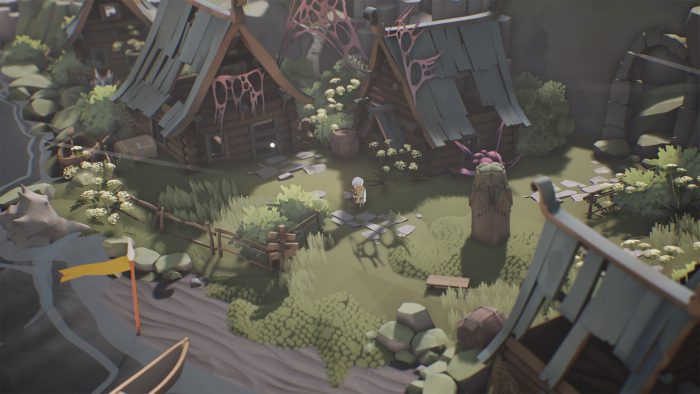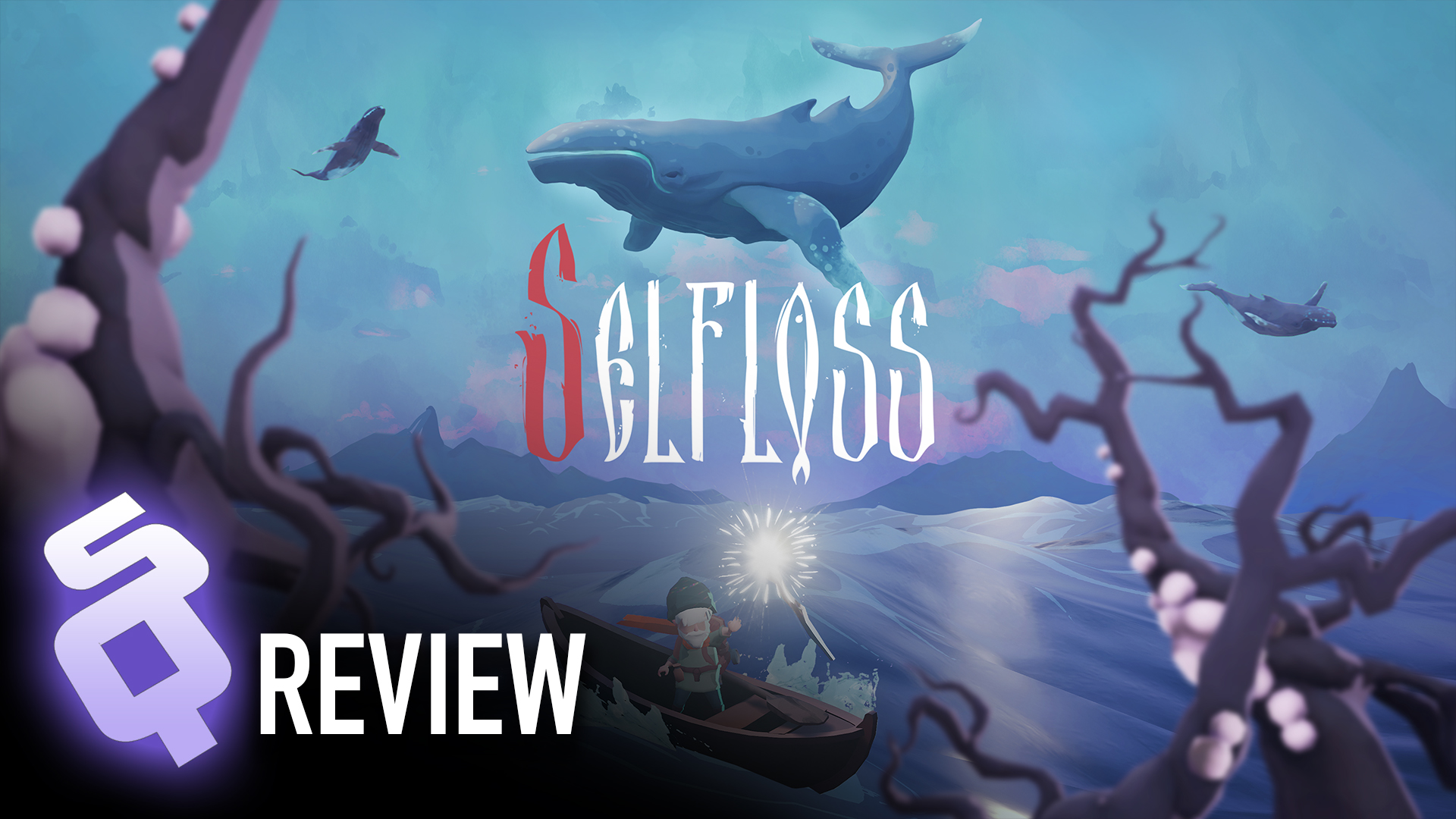Grief. It’s a tough subject matter to tackle. It may be a universal emotion, but we all mourn for different things, in our own ways. How does one go about exploring this in a video game? That’s what Goodwin Games attempts to answer with Selfloss.
We play as an old deceased man named Kazimir on a quest to heal the souls of the deceased so that he might heal his own and be able to return to his family. The world of Selfloss is a purgatory-like land of the dead, heavily inspired by Slavic mythology. We’ll come across giants, elves and other mythical creatures as we battle the corrupting force known as Miasma taking root in its lands.
The formula here is fairly straightforward. Each chapter has us fighting enemies and solving puzzles with a staff that emits a beam of light. Focus the light on enemies long enough and they become frozen, and thus vulnerable to melee attacks; focus it on a glyph or a rune to light it up, acting as the game’s makeshift levers. It doesn’t take long before we’ve seen everything it has to offer, with only the rare boss encounter spicing things up. Both the combat and puzzles felt like placeholder to get to the meat of the game, which was helping creatures with their own grief, like a turtle mourning over the body of her child or cleansing corruption from a mythical flying creature.
Be it on foot or by boat, movement is a mixed bag to say the least. Kazimir’s sickle has shoddy hit detection; slashing through enemies and breakable objects without doing anything is an all too common occurrence. Any time I feel challenged in the game it usually comes down to wonky controls fighting me the entire way. Signposting is an issue at times as well, most notably with a particular enemy we have to dash into with the boat, despite being told dashing into things breaks the boat in an instant death screen.

But I’m glad I went through the struggle because this tale of grief, with its added message of mankind’s destruction of the ecosystem and various wildlife, is a poignant reminder of how we all need more empathy in our lives. It is in fact the use of animals as characters that helps us project our own feelings of loss onto that of Kazimir (I won’t go into specifics on his own particular bereavement due to spoilers), as there’s an indescribable quality to the kind of love people have for animals. As someone who loves animals and tries to look at life with as much of an empathetic lens as possible, the commentary on animals (with the whales affected by the fishing industry being the primary message within the game) always kept me engaged, even with all the game’s faults.
This review is based on a Steam code sent to SideQuesting by the publisher.


No Comments